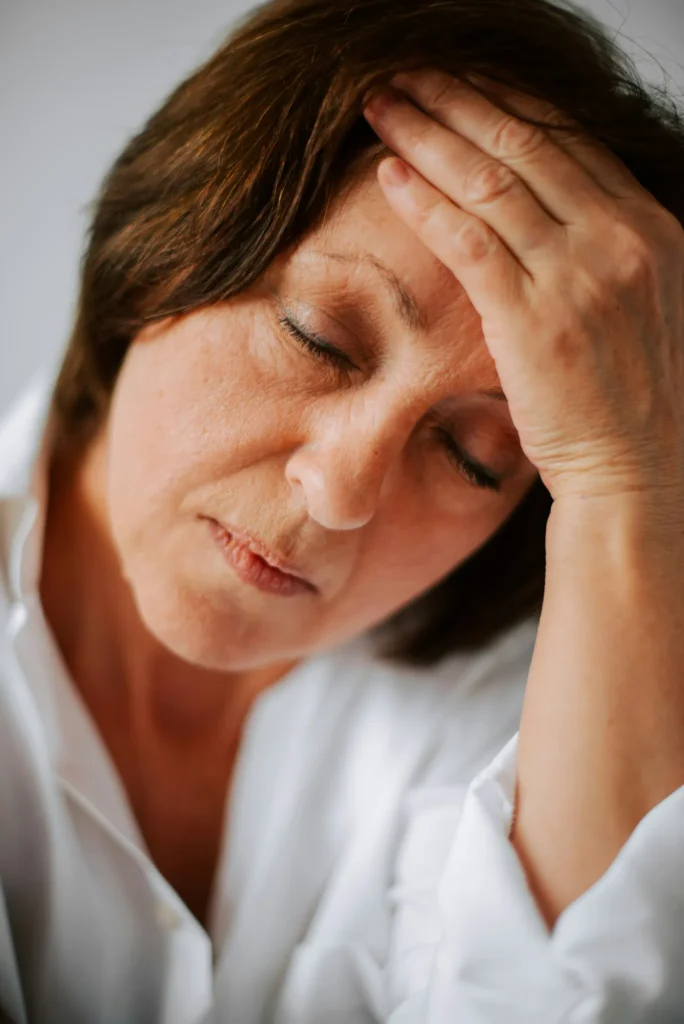Early Menopause: How to Spot the Symptoms and Seek Treatment
Menopause is a natural biological process that marks the end of a woman’s menstrual cycles. It typically occurs in women in their late 40s to early 50s, but for some women, menopause can occur much earlier than expected. Early menopause, also known as premature menopause, is when menopause happens before the age of 40. This can be a challenging experience for women as it can have significant physical and emotional impacts. In this article, we will explore the symptoms of early menopause, how to spot them, and how to seek treatment.
Symptoms of Early Menopause
Early menopause can present with a variety of symptoms that are similar to those of natural menopause. Some common symptoms of early menopause include:
1. Irregular periods: One of the first signs of early menopause is irregular periods. This can include periods that are shorter, longer, lighter, or heavier than usual.
2. Hot flashes: Hot flashes are a common symptom of menopause, and they can occur in women experiencing early menopause as well. Hot flashes are sudden feelings of warmth that can cause flushing and sweating.
3. Night sweats: Night sweats are episodes of excessive sweating that occur during sleep. This can disrupt sleep and lead to fatigue and irritability.
4. Vaginal dryness: Early menopause can cause a decrease in estrogen levels, leading to vaginal dryness and discomfort during intercourse.
5. Mood changes: Hormonal changes associated with early menopause can lead to mood swings, anxiety, and depression.
6. Insomnia: Changes in hormone levels can also disrupt sleep patterns, leading to insomnia and difficulty falling or staying asleep.
7. Decreased libido: Decreased estrogen levels can also impact libido, leading to a decreased interest in sex.
8. Urinary symptoms: Early menopause can cause changes in the urinary tract, leading to symptoms such as frequent urination, urinary incontinence, or urinary tract infections.
Seeking Treatment for Early Menopause
If you suspect that you are experiencing early menopause, it is important to seek medical advice from a healthcare provider. They can perform tests to confirm the diagnosis and discuss treatment options with you. There are several treatment options available for women experiencing early menopause, including:
1. Hormone replacement therapy (HRT): HRT involves taking estrogen and sometimes progesterone to replace the hormones that are no longer being produced by the ovaries. This can help relieve symptoms such as hot flashes, vaginal dryness, and mood changes.
2. Lifestyle changes: Making healthy lifestyle choices such as eating a balanced diet, exercising regularly, and reducing stress can help manage symptoms of early menopause.
3. Alternative therapies: Some women find relief from symptoms of early menopause through alternative therapies such as acupuncture, herbal supplements, or mindfulness practices.
4. Support groups: Joining a support group for women experiencing early menopause can provide emotional support and a sense of community during this challenging time.
Frequently Asked Questions about Early Menopause
Q: What causes early menopause?
A: Early menopause can be caused by a variety of factors, including genetics, autoimmune disorders, surgery, or certain medical treatments such as chemotherapy or radiation therapy.
Q: Can early menopause be reversed?
A: Early menopause is a natural process that cannot be reversed. However, treatment options are available to help manage symptoms and improve quality of life.
Q: Will I still be able to have children if I experience early menopause?
A: Early menopause can make it more difficult to conceive naturally, but options such as egg freezing or using a donor egg are available for women who wish to have children.
Q: Are there long-term health risks associated with early menopause?
A: Women who experience early menopause may be at a higher risk for certain health conditions such as osteoporosis, heart disease, and cognitive decline. It is important to discuss these risks with your healthcare provider and take steps to mitigate them.
Q: How can I support a loved one going through early menopause?
A: Supporting a loved one going through early menopause involves listening to their concerns, offering emotional support, and helping them access resources such as healthcare providers and support groups.
In conclusion, early menopause can be a challenging experience for women, but with the right support and treatment, it is possible to manage symptoms and improve quality of life. If you suspect that you are experiencing early menopause, seek medical advice from a healthcare provider who can help you navigate this journey with compassion and care. Remember that you are not alone, and there are resources available to support you through this transition.


